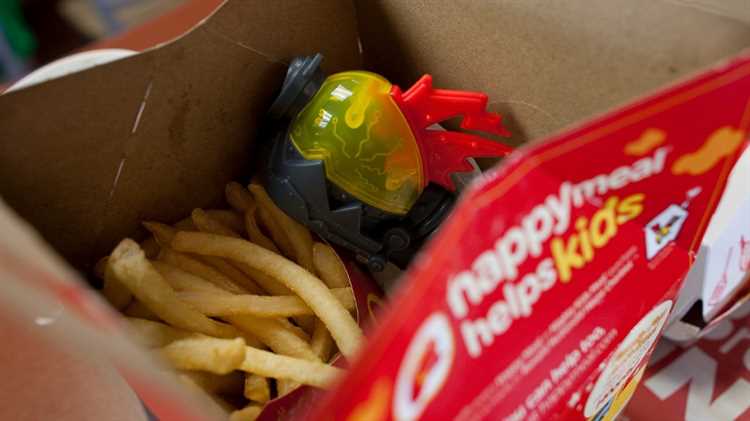
In a bold move to prioritize health and sustainability, Burger King has made the decision to remove toys from their meals. This decision comes as part of the fast food chain’s ongoing efforts to promote healthier eating habits and reduce their environmental impact.
One of the main reasons behind Burger King’s decision is to encourage children to make healthier food choices. By removing toys from their meals, Burger King aims to shift the focus from gimmicks and entertainment to nutritious options. This move is in line with the growing concern over childhood obesity and the importance of establishing healthy eating habits from a young age.
Furthermore, Burger King’s decision to remove toys from their meals is driven by their commitment to sustainability. The production and distribution of toys contribute to plastic waste and carbon emissions. By eliminating toys, Burger King is taking a stand against the excessive use of plastic and striving to reduce their ecological footprint.
While some may argue that toys are an essential part of the fast food experience for children, Burger King believes that this decision is in the best interest of their young customers and the planet. By removing toys, Burger King is sending a message that healthy eating and environmental responsibility should take priority over short-lived enjoyment.
- Burger King’s decision
- 1. Promoting healthier choices
- 2. Reducing waste
- 3. Addressing concerns about marketing to children
- Fast food chain removes toys from their meals
- Reasons behind the decision
- Environmental impact
- Health concerns
- Childhood obesity
- Nutritional value
- Focusing on the nutritional aspect of children’s meals
- Promoting healthier options
- Educating children about nutrition
- Offering more balanced meal choices for young customers
- Environmental impact
- Reducing plastic waste and being more eco-friendly
- Q&A:
- Why did Burger King remove toys from their meals?
- Will children still be interested in buying meals at Burger King without toys?
- What kind of healthier food options will Burger King offer to children?
- How will Burger King’s decision to remove toys affect their sales?
Burger King’s decision
Burger King recently made the decision to remove toys from their meals, a move that has generated significant discussion. There are several reasons behind this decision, which we will explore below.
1. Promoting healthier choices
One of the primary reasons behind Burger King’s decision is a desire to promote healthier choices to children. By removing toys from their meals, Burger King hopes to encourage kids to focus on the nutritional value of the food they consume rather than being swayed by the allure of a toy.
2. Reducing waste
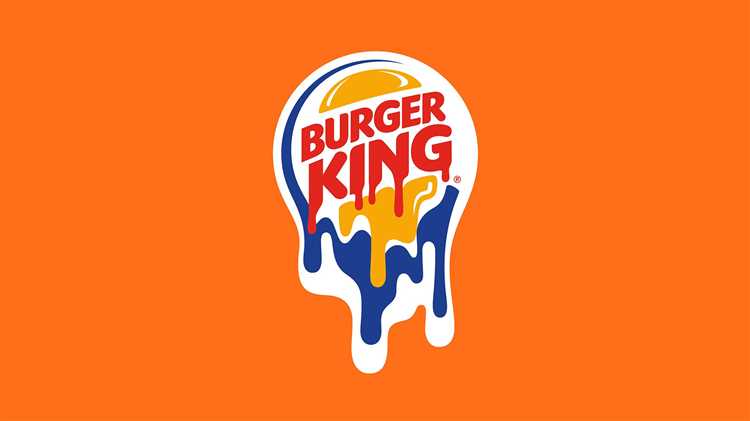
Another factor in Burger King’s decision is a commitment to environmental sustainability. The toys included in fast-food meals often end up discarded shortly after purchase, contributing to waste in landfills. By removing toys, Burger King aims to reduce their environmental impact and be more conscious of waste management.
3. Addressing concerns about marketing to children
Burger King’s decision also takes into account the criticism they have faced regarding marketing aimed at children. Some argue that including toys with meals can be perceived as a way to manipulate children into making unhealthy food choices. By removing toys, Burger King hopes to address these concerns and demonstrate their commitment to responsible marketing.
- By promoting healthier choices
- By reducing waste
- By addressing concerns about marketing to children
In conclusion, Burger King’s decision to remove toys from their meals reflects their commitment to promoting healthier choices, reducing waste, and addressing concerns about marketing to children.
Fast food chain removes toys from their meals
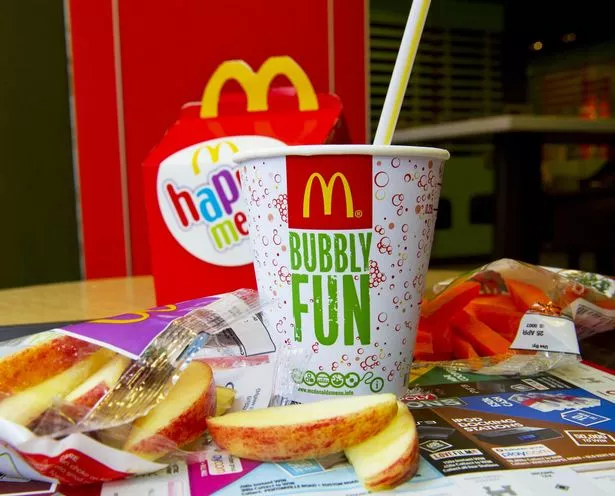
In a recent announcement, Burger King, a popular fast food chain, revealed their decision to remove toys from their meals. This decision comes as part of the company’s commitment to promoting healthier food options and reducing the impact on the environment.
Reasons behind the decision
Burger King’s decision to remove toys from their meals is primarily motivated by concerns over childhood obesity rates and the overall health of their customers. By eliminating toys from their meals, the company hopes to encourage children and parents to make more informed choices when it comes to their food and beverage consumption.
Furthermore, Burger King aims to reduce the marketing practices that appeal to children and their consumption of unhealthy fast food options. Many studies have shown that the inclusion of toys in meals can influence children’s food preferences and lead to the consumption of less nutritious options.
Environmental impact
Another important factor in Burger King’s decision is the environmental impact of the toys. By removing plastic toys from their meals, the company significantly reduces their plastic waste production. This move is part of a broader effort by Burger King to adopt more sustainable practices, including the use of renewable energy sources and the reduction of single-use plastics.
Burger King’s decision to remove toys from their meals is a step in the right direction towards promoting healthier food options and reducing environmental harm. The company hopes that this change will inspire other fast food chains to follow suit and prioritize the well-being of their customers and the planet.
Overall, Burger King’s decision to remove toys from their meals reflects their commitment to creating a healthier and more sustainable fast food industry.
Health concerns
One of the primary reasons behind Burger King’s decision to remove toys from their meals is health concerns. The fast-food industry has long faced criticism for promoting unhealthy eating habits, especially among children. By eliminating toys from their meals, Burger King aims to shift the focus towards providing more nutritious options.
Studies have shown that diets high in fast food can lead to various health problems, including obesity, heart disease, and diabetes. According to the Centers for Disease Control and Prevention (CDC), approximately 20% of children in the United States are obese. This alarming statistic highlights the need for healthier food choices, especially in fast-food chains that cater to a younger audience.
Childhood obesity
Childhood obesity has become a major public health issue in recent years. The availability and promotion of unhealthy foods, such as fast food meals with toys, can contribute to the development of obesity in children. By removing toys from their meals, Burger King hopes to encourage healthier eating habits and reduce the risk of childhood obesity.
In addition to the physical health risks, obesity can also have a negative impact on a child’s mental and emotional well-being. Children who are overweight or obese may face bullying and low self-esteem, which can have long-term effects on their overall quality of life.
Nutritional value
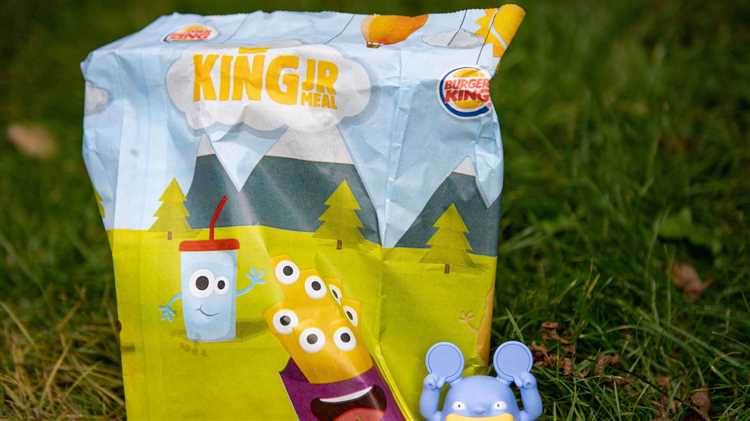
Another health concern associated with fast food is its lack of nutritional value. Many fast food meals are high in calories, unhealthy fats, and sodium, while lacking essential nutrients like fiber, vitamins, and minerals. By removing toys from their meals, Burger King can focus on offering more nutritious options, including fresh fruits and vegetables, lean proteins, and whole grains.
By addressing these health concerns and promoting healthier food choices, Burger King aims to improve the overall well-being of its customers, especially children.
Focusing on the nutritional aspect of children’s meals
Burger King’s decision to remove toys from their meals is a clear indication of the company’s commitment to promoting healthier eating habits among children. By shifting the focus from gimmicks and toys to nutrition, Burger King aims to provide a more wholesome and well-rounded dining experience for young customers.
The growing concern over childhood obesity
Childhood obesity has become a pressing issue in recent years, with studies highlighting the negative impact of unhealthy eating habits on children’s well-being. By eliminating toys from their meals, Burger King acknowledges the need to address this concern and take a more responsible approach to children’s nutrition.
Creating nutritious and balanced options
With the removal of toys, Burger King can now dedicate more attention and resources to developing and promoting healthier meal options for children. By offering meals that are low in fat, sugar, and salt, and incorporating more fruits, vegetables, and whole grains, Burger King aims to provide a more nutritious alternative to traditional fast food options.
Moreover, Burger King can now focus on enhancing the nutritional value of their menu items by exploring partnerships with local suppliers and incorporating organic or sustainably sourced ingredients. This not only benefits the children’s meals but also promotes the overall sustainability and wellness aspects of Burger King’s brand.
Empowering parents and making informed choices
By removing toys from meals, Burger King also encourages parents to take a more active role in their children’s eating habits. With the emphasis on nutrition, parents can make informed choices regarding the meals they order for their children. This helps parents to instill healthy habits from an early age and promote a balanced diet.
Education and awareness
Burger King can use this opportunity to educate children and their parents through informative materials and resources. By providing information about the nutritional value of their meals, Burger King can raise awareness about the importance of making healthier food choices. This can be done through digital platforms, in-store displays, or even collaborations with schools and other educational institutions.
In conclusion, Burger King’s decision to remove toys from their meals reflects a strategic shift towards focusing on the nutritional aspect of children’s meals. This move demonstrates their dedication to combat childhood obesity, create healthier meal options, empower parents to make informed choices, and raise awareness about nutrition and healthy eating habits. It sets a positive example for the fast-food industry as a whole, promoting a more responsible approach to children’s nutrition.
Promoting healthier options
Burger King’s decision to remove toys from their meals is a step towards promoting healthier options for children. By eliminating the presence of toys in their children’s meals, Burger King aims to shift the focus from gimmicks to nutritious food choices.
Childhood obesity is a significant concern worldwide, and fast food chains often receive criticism for contributing to unhealthy eating habits. By removing toys, Burger King acknowledges the need to prioritize the well-being of children and encourages them to make better food choices.
Educating children about nutrition
In addition to removing the toys, Burger King plans to invest in educational campaigns that raise awareness about nutrition and healthy eating habits. These campaigns will aim to teach children about the importance of a balanced diet and the role of nutritious food in their overall well-being.
By focusing on education, Burger King hopes to empower children to make informed choices about their food and develop healthier eating habits from an early age. By doing so, they aim to contribute positively to the fight against childhood obesity and promote a healthier future generation.
Offering more balanced meal choices for young customers
Burger King’s decision to remove toys from their meals is rooted in their commitment to providing more balanced meal options for young customers. The fast-food chain recognizes the importance of promoting healthier choices among children and aims to encourage a more nutritious diet.
By eliminating toys from their meals, Burger King hopes to redirect the focus towards the food itself and encourage children to make healthier choices. This decision also aligns with societal concerns regarding childhood obesity, as the inclusion of toys may often entice children to consume less nutritious options.
With this change, Burger King aims to:
- Promote healthier eating habits: By removing toys, the emphasis shifts towards nutritious food options. Burger King offers a variety of healthier alternatives, such as apple slices or a side salad, to accompany their meals.
- Empower parents: By removing the allure of toys, parents are encouraged to make more informed decisions on behalf of their children when it comes to meal choices.
- Contribute to the fight against childhood obesity: By decreasing the promotion of less nutritious options, Burger King is taking a step towards combating the issue of childhood obesity and encouraging healthier lifestyles.
Overall, Burger King’s decision to remove toys from their meals demonstrates their commitment to providing more balanced meal choices for their young customers. By promoting healthier eating habits and empowering parents to make informed decisions, Burger King aims to play a role in the fight against childhood obesity.
Environmental impact
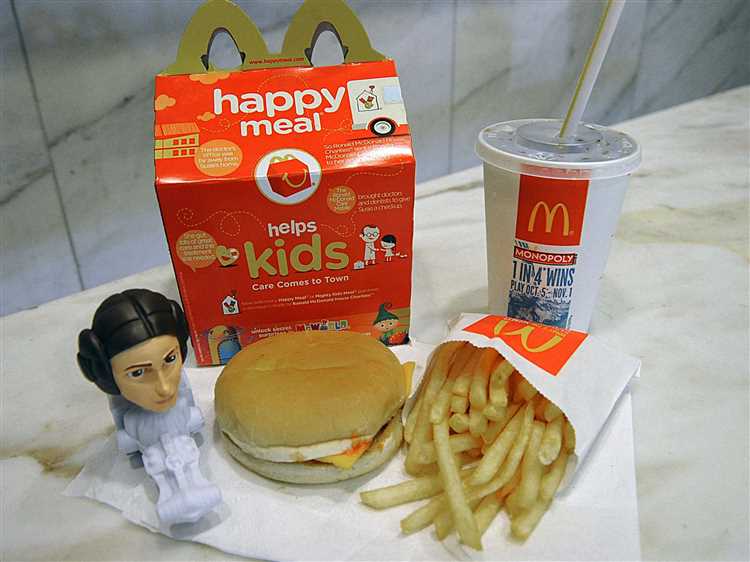
One of the main reasons behind Burger King’s decision to remove toys from their meals is the environmental impact of these plastic toys. Each year, fast food chains like Burger King produce millions of plastic toys that are distributed with children’s meals. These toys are often made from non-recyclable plastic and end up in landfills, contributing to the global plastic waste problem.
Plastic toys take hundreds of years to decompose, and during this time, they release harmful chemicals into the environment. These chemicals can contaminate soil and water, endangering wildlife and ecosystems. Additionally, the production of plastic toys requires the extraction of fossil fuels and the release of greenhouse gases, contributing to climate change.
By removing toys from their meals, Burger King aims to reduce its contribution to plastic waste and promote more sustainable practices. Instead of giving out plastic toys, the company plans to offer alternative options that are more environmentally friendly and have a lower carbon footprint.
Furthermore, Burger King’s decision to remove toys aligns with the growing global movement towards reducing single-use plastics. Governments and organizations around the world are implementing measures to ban or limit the use of plastic toys and other single-use plastics, recognizing the urgent need to address the plastic pollution crisis.
| Environmental Impact | Significance |
|---|---|
| Plastic waste from toys. | Contributes to the global plastic waste problem and takes hundreds of years to decompose. |
| Release of harmful chemicals. | Contaminates soil, water, and endangers wildlife and ecosystems. |
| Greenhouse gas emissions. | The production of plastic toys contributes to climate change. |
| Burger King’s sustainability efforts. | By removing toys, the company aims to reduce plastic waste and promote more sustainable practices. |
| Global movement against single-use plastics. | Aligns with the growing awareness and actions to reduce plastic pollution. |
Reducing plastic waste and being more eco-friendly
One of the main reasons behind Burger King’s decision to remove toys from their meals is their commitment to reducing plastic waste and being more eco-friendly. By eliminating toys from their kids’ meals, Burger King aims to minimize the amount of plastic ending up in landfills and oceans, thus contributing to a healthier planet.
Plastic toys, especially those given away with meals, often end up being discarded after a short period of use. They are not easily recyclable and can take hundreds of years to decompose. By removing toys from their meals, Burger King can help reduce the demand for new plastic toy production and decrease the amount of plastic waste generated.
In addition to reducing plastic waste, this decision aligns with the growing public concern about environmental issues. Customers are increasingly conscious about the impacts of plastic pollution and are taking steps towards more sustainable choices. Burger King’s move to remove toys from their meals demonstrates their commitment to meeting these consumer expectations and taking responsibility for their environmental footprint.
Burger King’s focus on reducing plastic waste and being more eco-friendly also sets an example for other fast food chains and restaurants. By leading the way in sustainability practices, they encourage others in the industry to follow suit and adopt similar initiatives. Together, these efforts can help to create a shift towards more sustainable practices and reduce the overall environmental impact of fast food meals.
Overall, Burger King’s decision to remove toys from their meals is driven by their commitment to reducing plastic waste and being more eco-friendly. This step not only helps to minimize the amount of plastic waste generated but also sets an example for others in the industry to prioritize sustainability. By taking such actions, Burger King is making strides towards a greener future.
Q&A:
Why did Burger King remove toys from their meals?
Burger King removed toys from their meals as part of their efforts to promote healthier food options for children. The decision was made in response to concerns about childhood obesity and the role of fast food in contributing to unhealthy eating habits.
Will children still be interested in buying meals at Burger King without toys?
While the absence of toys in Burger King meals might initially deter some children from choosing them, Burger King is confident that their new focus on healthier food options will still appeal to their young customers. They believe that by offering nutritious and tasty alternatives, children will continue to enjoy the meals at their restaurants.
What kind of healthier food options will Burger King offer to children?
Burger King plans to introduce a range of healthier food options for children, including grilled chicken sandwiches, fruit cups, and apple slices as alternatives to the traditional burger and fries combo. These additions aim to provide children with more balanced and nutritious meal choices.
How will Burger King’s decision to remove toys affect their sales?
While it is difficult to predict the exact impact on sales, Burger King’s decision to remove toys from their meals is part of a broader strategy to align their brand with healthier eating habits and cater to changing consumer preferences. They hope that by emphasizing healthier options, they will attract a new customer base and maintain or even increase their overall sales in the long run.
